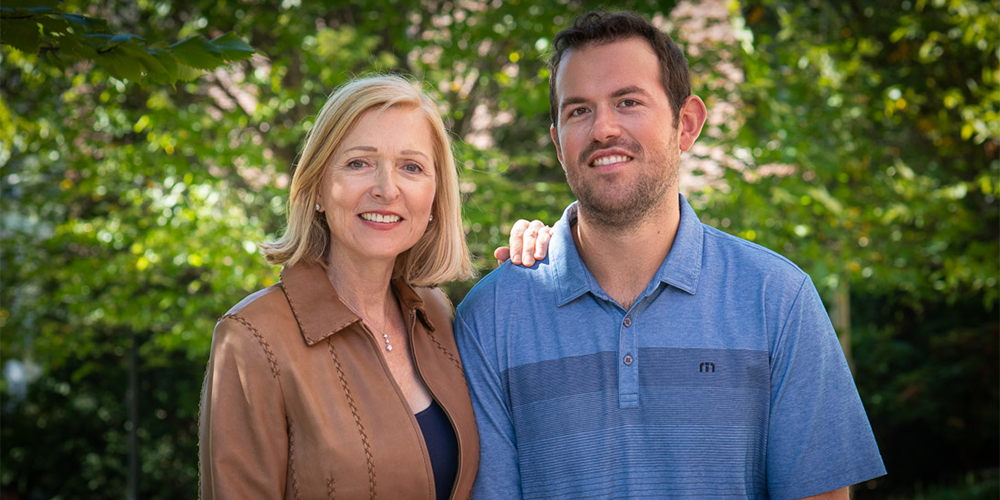
It’s every parent’s worst nightmare: the unexpected phone call with bad news about their child.
For Ellen Doremus, that call came one day in 2013. Her son, Blaise, had suffered a grand mal seizure in his sleep while on a camping trip deep in the Australian outback, where the 21-year-old was studying abroad.
Ellen immediately jumped on a plane, making the 24-hour trek to the other side of the world to be with her son. That trip would mark the beginning of a years-long search for answers as to the cause of Blaise’s massive seizure.
In those years, Blaise’s condition grew worse. Ellen explains how her son’s seizures went from nocturnal to occurring during the day as well, a shift likely due to his seizure medications. They also became more frequent; sometimes, Blaise would have multiple convulsions in a single weekend. These unpredictable seizures ruled their lives: Unable to drive or live on his own, Blaise grew increasingly despondent. Constantly on high alert, Ellen kept a baby monitor by her side at night.
But all that changed in early 2018, thanks to a life-changing discovery made at Brigham and Women’s Hospital.
Ellen and Blaise had recently moved from New York to the Boston area, and were referred to Brigham neurologist Paula Voinescu, MD, PhD. Reflecting on their first appointment with Voinescu, both were impressed by how she greeted them in the waiting room and gave them so much of her time—and at her unrelenting dedication to finding the root cause of Blaise’s seizures.
“She looked Blaise in the eyes and said, ‘We are going to fix this’,” Ellen recalls.
And that’s exactly what Voinescu and her team did. With the help of the Brigham’s powerful 7T MRI—only the second in the U.S. approved for clinical use—Voinescu was able to find a small lesion on Blaise’s left temporal lobe. This tiny gray spot, missed by all the other previous scans and neurologists, seemed to be the answer for which Ellen, Blaise, and now Voinescu had been searching.
“She said this could be curative—and I was flabbergasted,” says Ellen. “I couldn’t believe it,”
In May 2018, Blaise underwent brain surgery led by Brigham neurosurgeon Rees Cosgrove, MD, to remove the lesion. The surgery was a success, and Blaise has been seizure free ever since.
Today, Blaise’s life is unrecognizable from just a few years ago. He has his own apartment and car, a busy social life, and a job working for JetBlue, which allows the 29-year-old—once unable to go far from home—to travel the country.
“My life was turned around,” Blaise says. “The successful surgery and being seizure free gave me an independent life after being hopeless for many years.”
Ellen shares in her son’s gratitude. Had it not been for Voinescu and the collaborative efforts of the entire Brigham team, Ellen believes she and Blaise would not be where they are today.
Deeply grateful for their experience, Ellen made a bequest to the Brigham that will support three different areas of interest: Voinescu’s research, unrestricted support for the hospital, and pancreatic cancer research. In recognition of Ellen’s generosity, the Brigham welcomed her into The Brigham Legacy Society, which celebrates donors dedicated to shaping the future of medicine by including the hospital in their estate plans.
“Blaise is finally finding himself and making up for lost time,” remarks Ellen. “It’s wonderful, and it’s thanks to Dr. Voinescu. Because this was a very big mystery that could potentially never have been solved.”
Bequest giving
Create a lasting impact by making a legacy gift in your will or trust.
Supporters like you
Read more stories on supporters like you.
